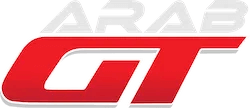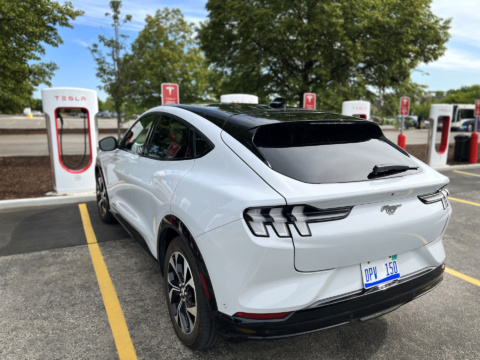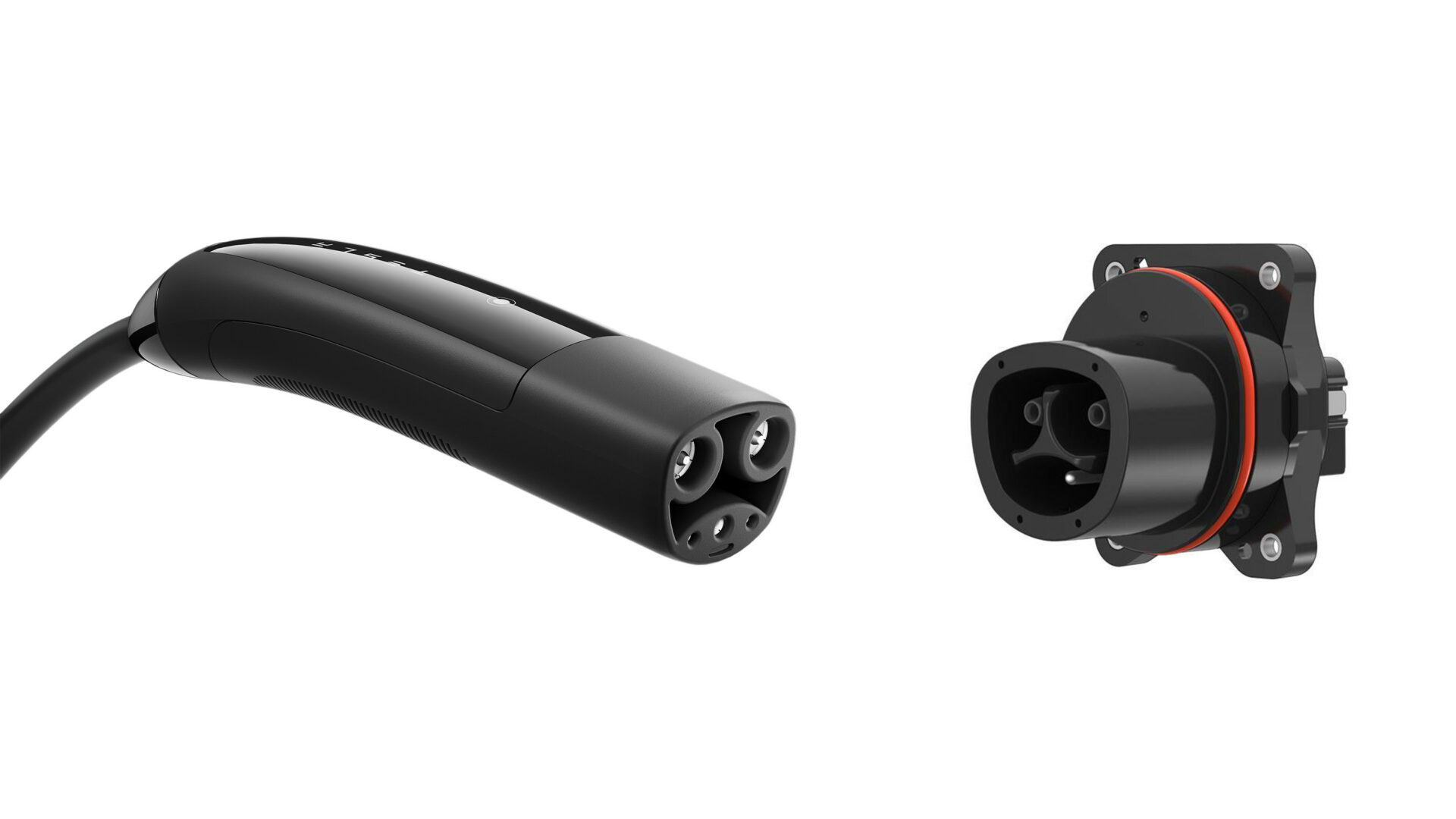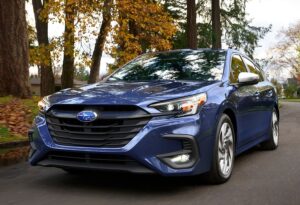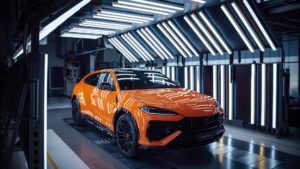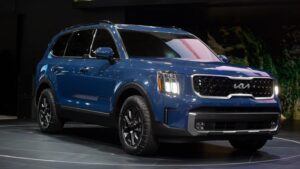Since November of last year, rival car manufacturers have been granted permission to utilize Tesla’s exclusive charging connector in their own vehicles. Ford Electric Vehicles are now positioning themselves as one of the frontrunners to seize this opportunity.
In a recent announcement on Thursday, Ford revealed that their upcoming lineup of next-generation electric vehicles, slated for release from 2025 onwards, will feature integrated Tesla connectors, specifically the North American Charging Standard (NACS). This integration will eliminate the requirement for an adapter when utilizing Tesla Supercharger DC fast chargers, streamlining the charging process for Ford EV owners.
Following the initial announcement by the White House in February, which was subsequently confirmed by Tesla, certain charging stations operated by Tesla in the United States will be made accessible to vehicles from competing brands. As part of this agreement, Tesla will receive a portion of federal funds aimed at expanding electric vehicle (EV) charging infrastructure.
With some locations already operational, Tesla has made a commitment to provide access to 7,500 individual chargers by the end of 2024. Out of these, a minimum of 3,500 will be high-speed Superchargers strategically positioned along highways. The remaining chargers will consist of slower Level 2 chargers, known as Destination chargers, found in places like hotels and restaurants. Notably, Tesla is also expanding its charging infrastructure by incorporating the widely adopted Combined Charging Standards (CCS) connector at its stations. This means that in the future, Tesla’s chargers will be compatible with both CCS and NACS connectors, enhancing accessibility for a broader range of electric vehicles.
In Ford’s recent announcement on Thursday, they disclosed a notable agreement with Tesla, granting Ford electric vehicle (EV) owners access to a vast network of over 12,000 Tesla Superchargers spanning the United States and Canada. As part of this collaboration, Ford will obtain API access to Tesla’s interface, enabling Ford EV owners to conveniently initiate charging sessions at Tesla stations using Ford’s own mobile app.
Combining this integration with Ford’s existing BlueOval Charge Network, which already provides access to over 10,000 public DC fast chargers, Ford EV owners will soon have access to one of the largest networks of fast chargers worldwide.
While Ford has maintained a discreet stance regarding their forthcoming lineup of next-generation EVs, which will be based on the newly developed modular EV platform called the Ford Generation 2 EV platform, it has been confirmed that at least one model will be a pickup truck, with another being a spacious three-row SUV.
